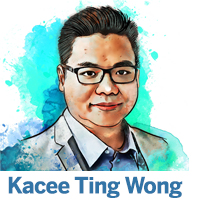The Convention on the Establishment of the International Organization for Mediation was signed into law on May 30 in a ceremony presided by China’s minister of foreign affairs, Wang Yi, in Hong Kong. The ceremony was attended by high-level representatives from over 80 countries across Asia, Africa, Latin America and Europe and about 20 international organizations — including the United Nations (UN).


The IOMed is a high-level international organization, with a status equivalent to that of the international Court of Justice and the Permanent Court of Arbitration in The Hague.
The decision to establish the headquarters of the IOMed in Hong Kong offers an unparalleled lens to understand the unique advantages of the city as an international hub for alternative dispute resolution (ADR). It is worthy of note that Hong Kong ranked joint first with Singapore in the Asia-Pacific region as the most preferred seat of arbitration in the 2025 International Arbitration Survey. Legal practitioners regard arbitration and mediation as two popular ADR methods.
READ MORE: Chan: IOMed to boost Hong Kong’s all-round competitiveness
Arguably, Hong Kong holds all the trumps in transforming itself into an international mediation hub — in terms of good timing, right place, and popular support.
The establishment of the IOMed is a timely response to the international community’s growing demand for a credible mediation hub to shape the ADR architecture in global governance. Mediation is on the rise as a cost-effective ADR method to resolve large-scale disputes globally. For instance, infrastructure construction-related disputes frequently use commercial mediators to settle disputes where there is an incentive or need to maintain an ongoing business relationship between parties. As Jose-Antonio Maurellet, chairman of the Hong Kong Bar Association, pointed out, disputes between states have been rising as geopolitical tensions increase across the globe, and having an international organization dedicated to mediation will be beneficial to both Hong Kong and disputing parties.
China wishes to accelerate the establishment of its own judicial and arbitral institutions with international influence. Against this backdrop, China decided to initiate the establishment of the IOMed, which would serve as a platform for mediation for the international community. Gaining a first-mover advantage, China will boost its soft power and international influence by playing a more active role in building a harmonious rules-based international community with a shared future with other countries.
Under the national 14th Five-Year Plan (2021-25), the Hong Kong Special Administrative Region is to develop into a center for international legal and dispute resolution services in the Asia-Pacific region. In the past few years, the SAR’s Department of Justice (DoJ) has sharpened the competitive edge of the local ADR sector by implementing various initiatives to consolidate the city’s position as a center for international legal and dispute resolution services. Hong Kong is ready to seize the opportunities offered by the opening of the IOMed.
One of the priorities of the DoJ is to step up efforts to promote Hong Kong as an international legal and dispute resolution services center for the Belt and Road Initiative (BRI). Most of the signatories to the Convention on the Establishment of the IOMed are taking part in the BRI. Since some BRI-participating countries are perceived to be filled with legal and regulatory minefields, the demands for an intergovernmental mediation organization to resolve intellectual property and trade disputes among them are expected to be strong. What matters most is the fact that different trade disputes have successfully been resolved through mediation (Raymond Leung (ed.), Hong Kong Mediation Handbook (HK: Sweet & Maxwell, 2009)).
Hong Kong is definitely the right place to host the IOMed. First, its growing reputation in dispute resolution received recognition in the World Bank Group’s 2024 Business Ready report. Second, the city is well-suited as a base for the IOMed, with its depth of multicultural legal talent and broad expertise in different systems of law. As Maurellet has pointed out, the IOMed will reinforce the city’s well-established strengths in dispute resolution, as it will be able to resolve more types of disputes with its use of common law.
Third, although Hong Kong does not have sufficient experience to resolve disputes between countries, it has maintained a robust mediation ecosystem. The existing Mediation Ordinance establishes a credible regulatory framework for the conduct of mediation in the city. Moreover, Hong Kong is the first jurisdiction in Asia to have enacted an Apology Ordinance to promote and encourage the making of apologies for preventing the escalation of disputes and maintaining the cooperative relationships among all parties. It is also a general policy to incorporate a mediation clause into all government contracts in the city. Last year, a settlement rate of 46 percent was achieved out of 290 cases mediated at the Court of First Instance.
ALSO READ: IOMed set to peacefully resolve international disputes
The popular support refers to the trust placed by the central government in Hong Kong in order to transform it into a center for international legal and dispute resolution services in the Asia-Pacific region, as well as the international community’s strong confidence in the city. Obviously, the decision is a vote of confidence in the city’s common law system, robust mediation ecosystem, talent pool and international connectivity. When China and nearly 20 other countries jointly launched the initiative to establish the IOMed in 2022, they unanimously agreed that the headquarters would be located in Hong Kong. Mention should be made of the strong support given by local legal practitioners to support the IOMed. Different sectors have also voiced their support. Most importantly, the HKSAR government is devoted to supporting the IOMED’s provision of friendly, flexible, economical and efficient mediation services.
Yin Zihan is a co-leader of the Rainbow Pair Mentorship Program launched and administered by Chinese Dream Think Tank.
Kacee Ting Wong is a barrister, a part-time researcher at Hong Kong and Macao Basic Law Research Center of Shenzhen University, chairman of Chinese Dream Think Tank, and a district councilor.
The views do not necessarily reflect those of China Daily.


